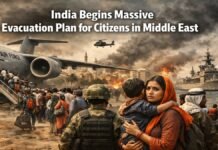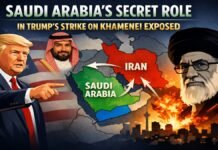
Dubai, United Arab Emirates:

Dr. Mohammad Al Zarooni Chairman of World FZO (Photo: AETOSWire)
In conjunction with the launch of its new corporate identity, the World FZO announced its new vision, mission, and purpose. Its new vision focuses on driving global economic progress, sustainability, and inclusive growth through empowered free zones, setting the benchmark for economic advancement. As part of its new mission, the World FZO aims to engage with free zones from around the world by supporting them through knowledge sharing, networking, advocacy, and consulting, enhancing their positive impact and contributions to economic and social development in their respective countries.
The World FZO reaffirmed its commitment to its core values while enhancing its approach by adopting the latest practices and keeping pace with rapid global changes. This forward-thinking approach enables the organisation to reshape prevailing perceptions and highlight its distinctive and innovative methods.
With its new identity, the World FZO also emphasises its dedication to launching purposeful and transparent initiatives that solidify its role as a catalyst for positive change on the global stage.
The organisation’s new corporate identity represents its three strategic pillars: Impact, Influence, and Trust. Its focus on Impact will drive sustainable growth and effectiveness, ensuring that free zones remain at the forefront of socio-economic development and innovation. Under its second pillar, Influence, it seeks to shape the future of global trade and investment by advocating for policies that foster growth and opportunity for businesses and communities. Furthermore, by building Trust, the organisation will reinforce its role as a steadfast ally, providing the advocacy needed to navigate an increasingly complex and evolving global landscape.
The organisation’s key objectives for its new phase include opening new investment horizons and reinforcing social contributions by supporting net-zero initiatives.
The World FZO remains focused on fostering trade relations and partnerships between economic zones in its member countries, while broadening its activities to encompass emerging economic sectors. These sectors align with the demands of the era, including artificial intelligence, digital trade, the Fourth Industrial Revolution, and advanced technologies.
![]()




















































